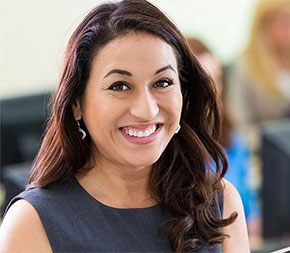The Importance of Special Education Degrees


Teachers with a special education degree work with students who have a wide variety of disabilities, from those with only mild learning disabilities to others who suffer from more severe intellectual disabilities, autism and physical impairments.
These educators have a genuine sense of compassion for students with special needs. If you feel that this is your calling, here are your degree program options.
A Variety of Degree Programs
To teach in an elementary or secondary school setting, you’ll need to complete the minimum of a bachelor’s degree, as well as complete a teaching preparation program from an accredited institution.
Quite a few states now require a master’s degree in special education to teach in the field, which entails an additional year or more of courses geared toward special education. You can also earn a doctorate in special education, which may prepare you for administrative positions, field research or teacher training at the college level.
Bachelor’s Degrees
Special education degrees are offered through many universities and colleges throughout the country. The 4-year curriculum covers subjects such as child development, educational psychology, special education policies and legalities, and the skills and knowledge necessary for teaching students with disabilities.
More and more special education degree programs require their students to complete a fifth year designed to hone special ed teaching skills in one or more areas of specialization, including speech therapy, reading disabilities or nonverbal learning disabilities.
With a bachelor’s degree, you might find teaching or teacher assistant positions at the traditional elementary or secondary levels, but new legislation also now opens doors to teach at early childhood levels, including toddlers and preschoolers.
Master’s (MA or MEd) Degrees
Most post-graduate programs focus on a specific type of special needs student. For example, a graduate degree may focus on working with the visually impaired or legally blind. Whether you earn a Master of Arts (MA) or a Master of Education (MEd) often depends upon your intended specialty and the state in which you get your teacher certification.
For example, many states including New York require those who wish to specialize in the education of deaf and hard of hearing to complete a 2-year, 60-point program that leads to dual certification in the education of both hearing-impaired and hearing students. A graduate of this program will earn an MEd with the possibility of also receiving an MA. Check with your state’s Department of Education to find out what their requirements are.
Educational Specialist (EdS) Degrees
If you currently hold a master’s degree in education and would like to develop special ed teaching skills without earning a doctorate, you might consider an EdS program. An EdS degree is roughly equivalent to a second master’s degree and usually requires completion of 35 to 45 semester hours. Many EdS graduates become school counselors and psychologists, or research and development specialists.
Doctoral (PhD or EdD) Degrees
A PhD or EdD program in special education prepares post-master’s students for leadership positions in a school, college, university or research setting. Emphasis is placed on research and educator teaching through the completion of core requirements and individually designed studies in your area of expertise.
Many doctorate-level special education degrees involve real-life research that can make a difference in improving special education practices. Expectations for college-level teaching and supervision often include achieving competency in college teaching under faculty direction.
A typical PhD in special education consists of five or six semesters of supervised study but is not complete until you pass your oral comprehensive exams and your committee has accepted your dissertation.
Working in the field of special education isn’t always easy. It often demands more patience and empathy than expected of a traditional classroom teacher. But for those positive people with understanding and the desire to help, special education can be an incredibly rewarding career.



